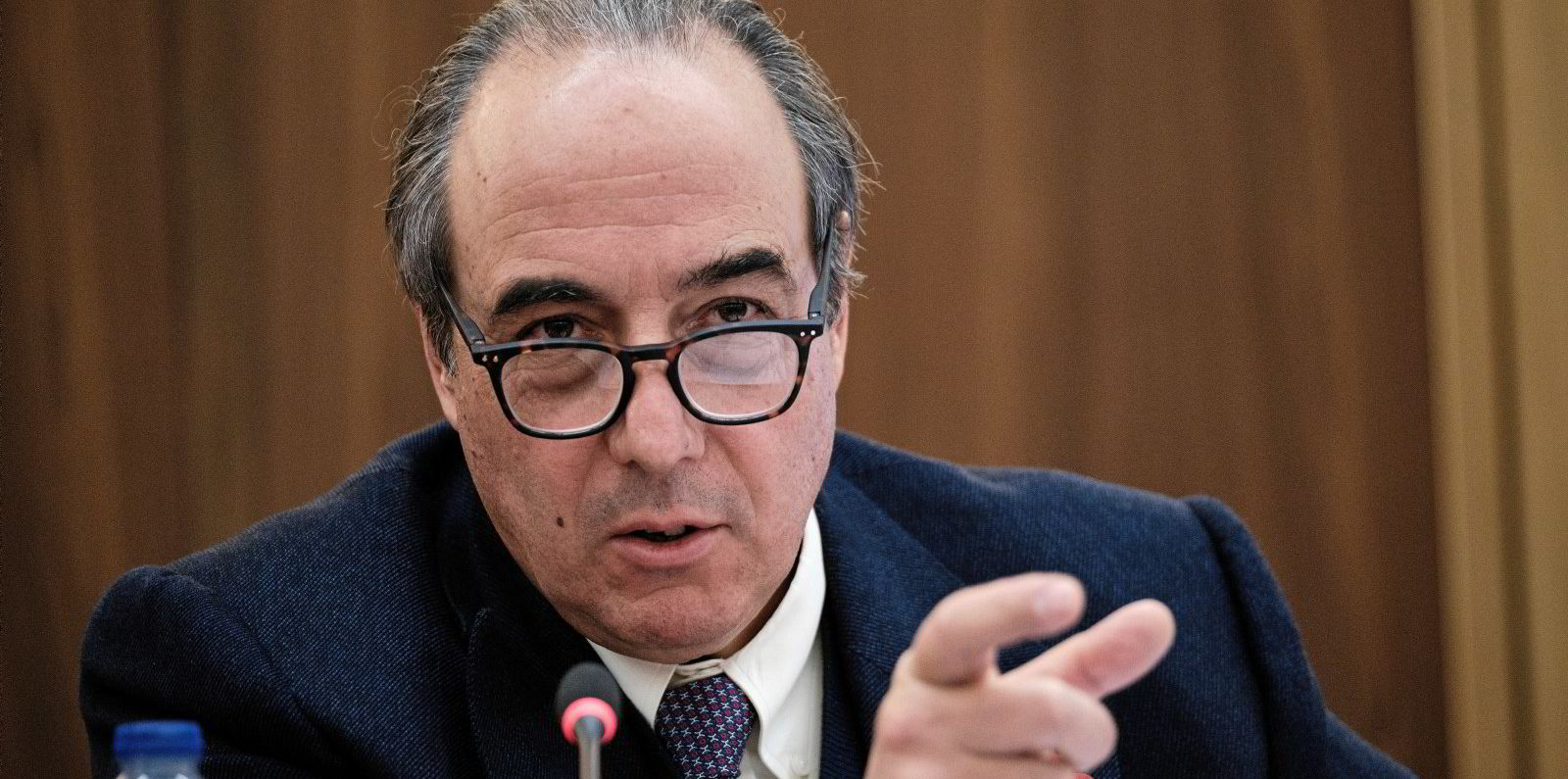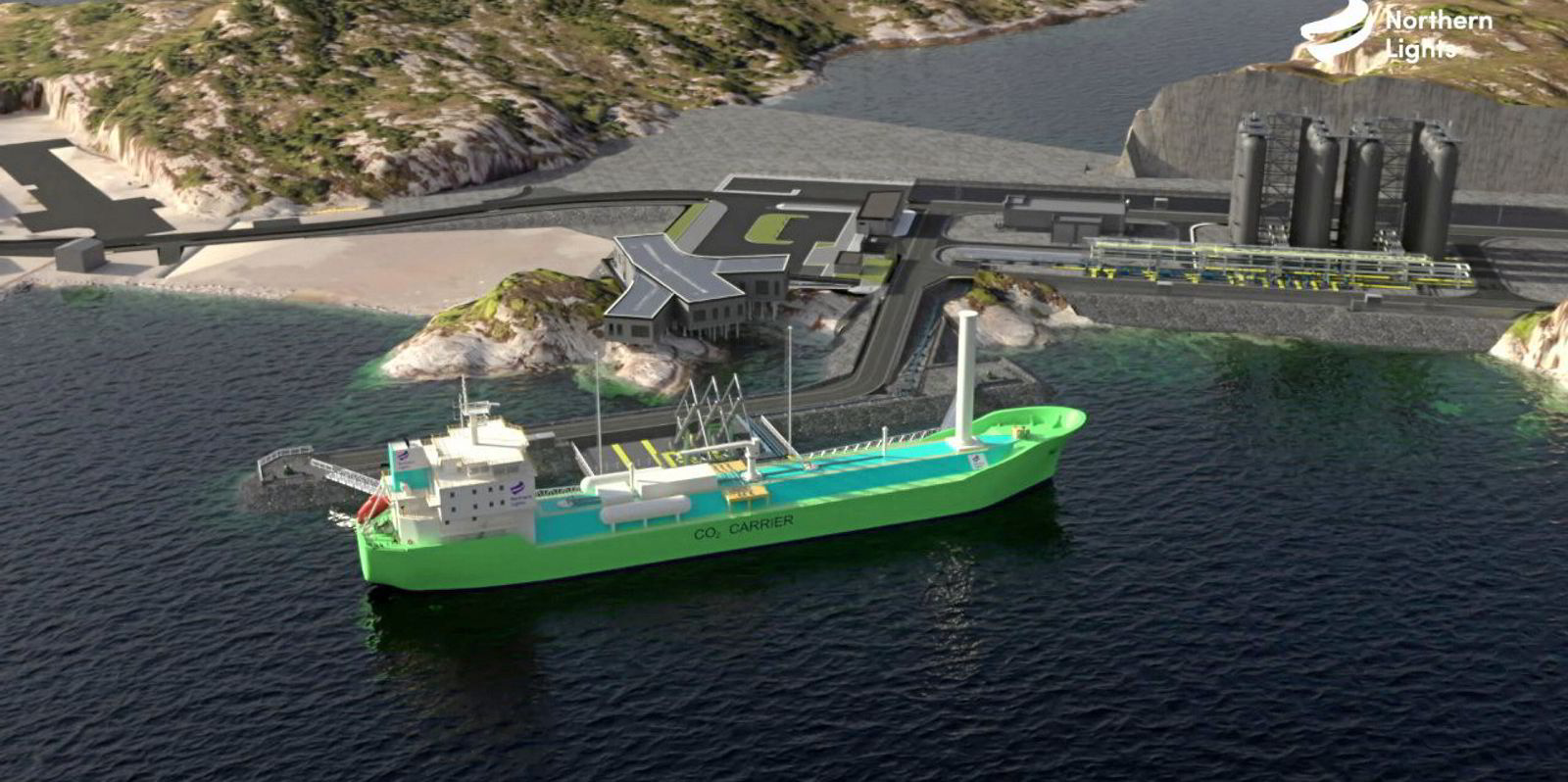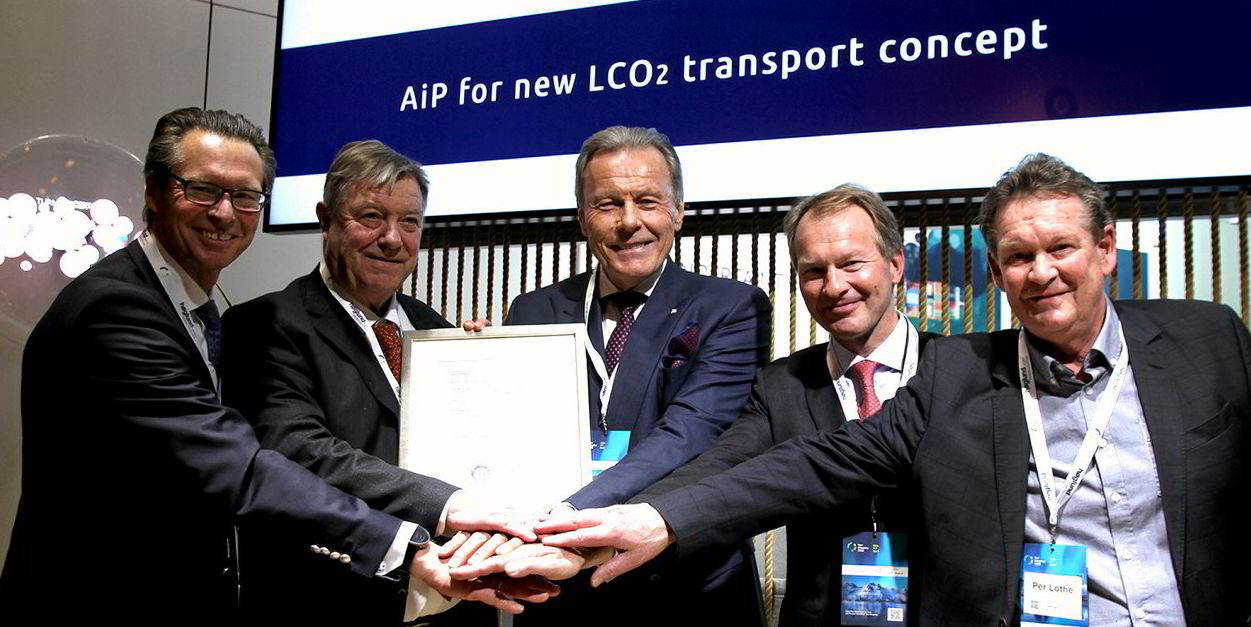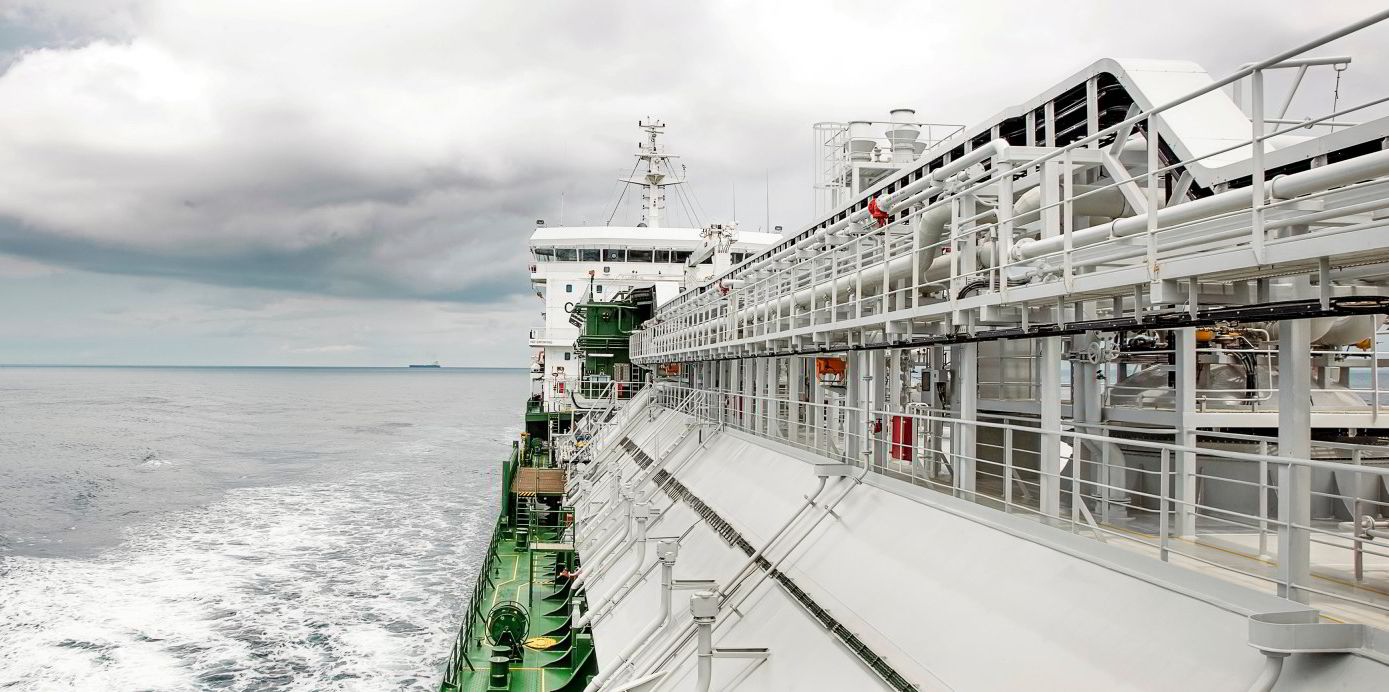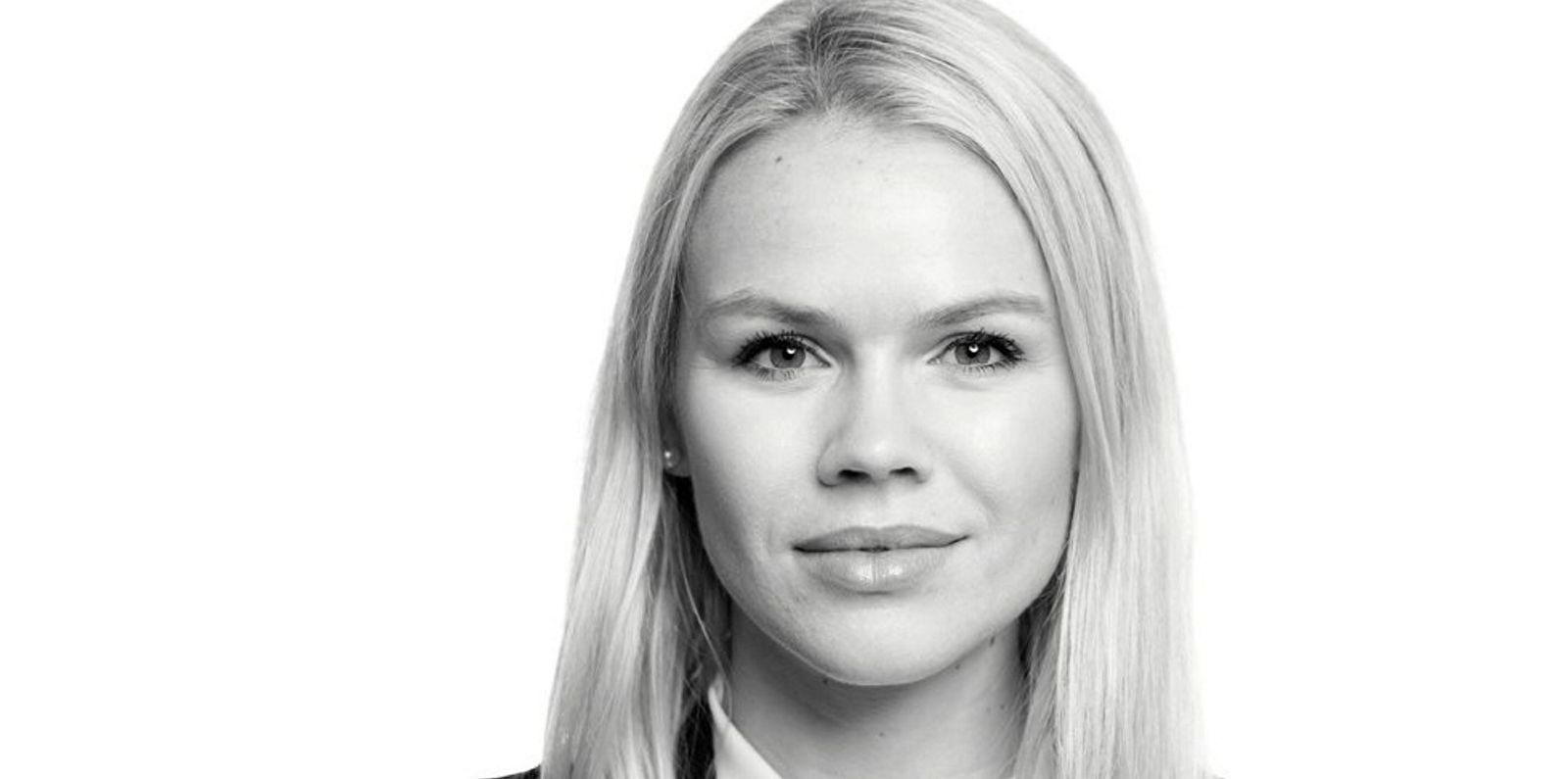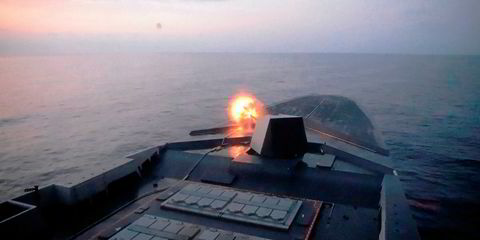Peter Livanos is jumping into carbon capture, utilisation and storage (CCUS) with a new 60-ship CO2 carrier fleet and terminals business called EcoLog.
The company, which is backed by Livanos-controlled Ceres Shipping, launched today with the stated aim of becoming the world’s largest CCUS midstream business, dedicated to supporting the delivery of a net-zero carbon industry.
EcoLog plans to control a fleet of 60 specialised vessels along with an associated network of import and export terminals, to transport 50 million tonnes of CO2 per year by 2035.
The company said its ships will be first-of-a-kind on a scale ranging from 20,000 cbm for regional shipments to 85,000 cbm for those on longer-distance trades.
Each vessel will transport more than one million tonnes of CO2 per annum between EcoLog’s import and export terminals.
The ships and terminals will operate at eight-bar pressure, which will allow for the shipment of large volumes of CO2 to keep costs low.
EcoLog said all of the technologies to be deployed within this network have been established for many years, simply reconfigured for scale and product.
Speaking to TradeWinds, EcoLog’s Jasper Heikens, who previously worked with GasLog and is building the new business with Ceres Shipping, said the aim is to see the first trade of five million tonnes of CO2 put in place by 2026 to 2027.
EcoLog then plans to expand out with a further five million tonnes each year.
Heikens would not be drawn on the initial investment cash being ploughed into EcoLog.
He said the business is already working with a storage provider in the US and an engineering procurement and construction contractor on the terminals.
EcoLog is also talking to shipyards in South Korea on the CO2 carrier designs.
Heikens, who also declined to put any figure on what the newbuildings might cost, said EcoLog’s largest vessel will be able to ship 100,000 tonnes of CO2 per voyage or one million tonnes of CO2 per annum.
The company sees this size of vessel that would be larger than a VLGC — operating on longer-haul routes between Japan and South Korea and Australia, the US and Europe.
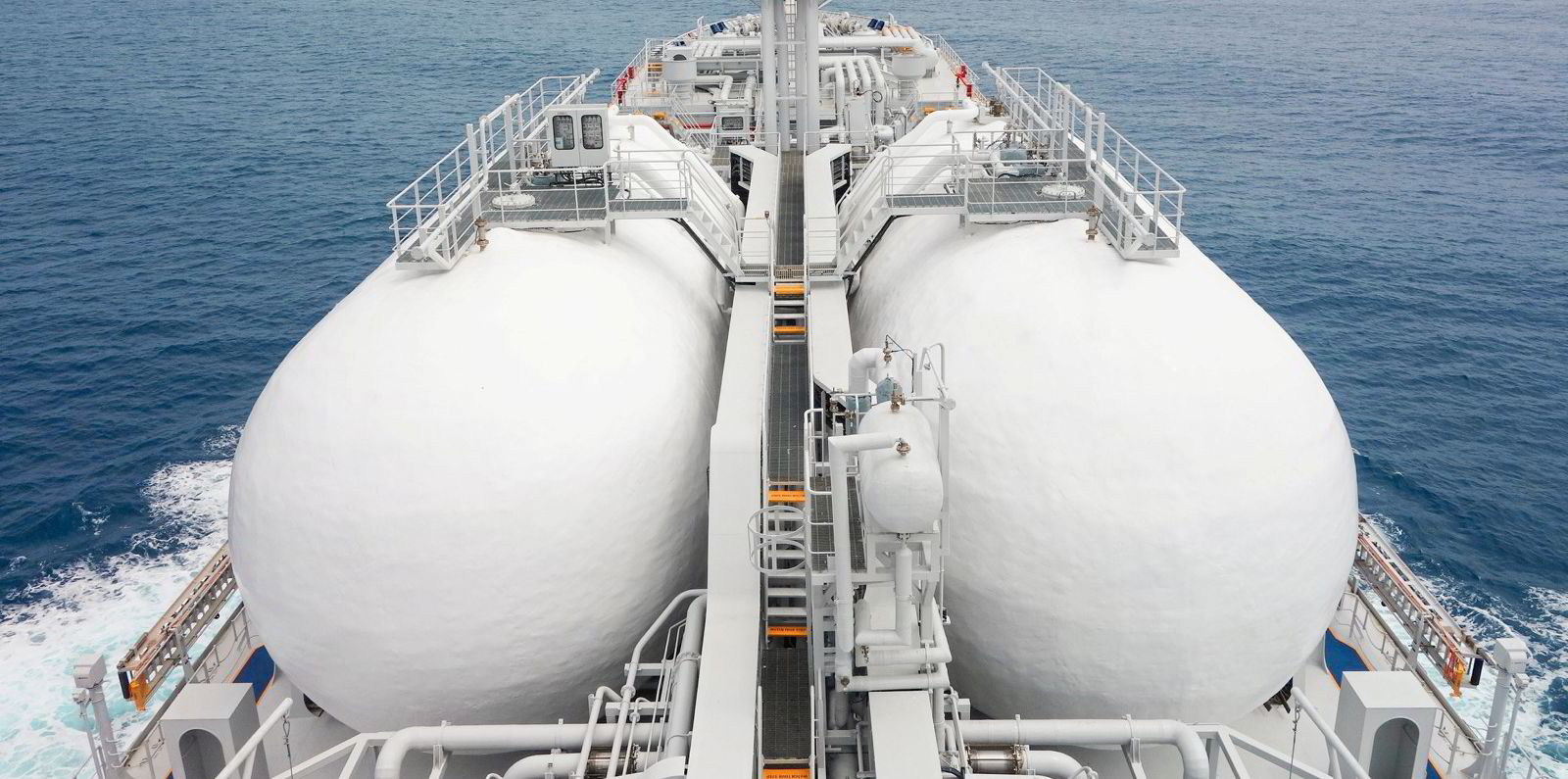
The smaller 20,000-cbm CO2 carrier, which he stresses is three times the size of those being built for the Northern Lights project, could be deployed in areas such as the Mediterranean or northern Europe.
He stressed that the CO2 business needs to be done at scale to keep it low cost.
“We don’t believe this small scale [CO2 shipment] will work,” he said describing it as like using an LNG bunker vessel to lift LNG cargo volumes from Cheniere Energy’s Sabine Pass LNG terminal into Europe.
Heikens revealed that the team has been working on the new business under the radar since the end of summer 2021.

He said one of the key drivers is the International Energy Agency’s global challenge to sequester 7.6 gigatonnes of CO2 by 2050 to stay within 1.5C target for global warming.
The aim is to create a midstream service for emitters, with EcoLog taking the gas at its terminals and delivering it to a sequestration or usage site, Heikens said, adding that there are large single-source potential customers who produce close to 10 million tonnes of CO2 per annum.
He said EcoLog is quite flexible in how it participates in the solution and will have strategic alliances with other partners.
But he admits that there are also regulatory hurdles to overcome.
Heikens cited the London Protocol, which prevents CO2 from being moved across borders. He also said the European Union’s proposed emissions trading system would not recognise CO2 as not being emitted if it were stored or used outside the EU.
He added that Ecolog has meetings planned with the European Commission.
“We need to be able to freely move CO2 and incentivise emitters to do so to bring it down to the lowest cost possible,” he said. “This is a waste product, it needs to be incredibly competitively priced.”
EcoLog is based in Greece, currently in the same offices as Livanos LNG carrier arm GasLog.
Heikens hinted at some very senior people who have been working as advisors to the new venture and said the company is currently building its team.
